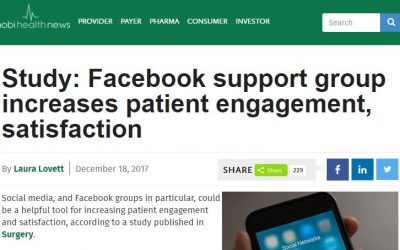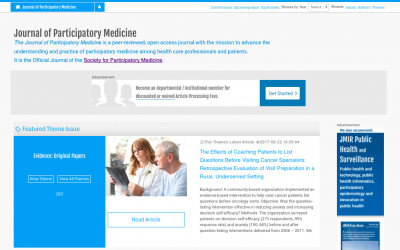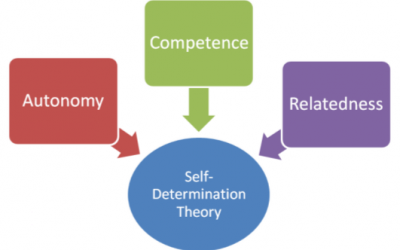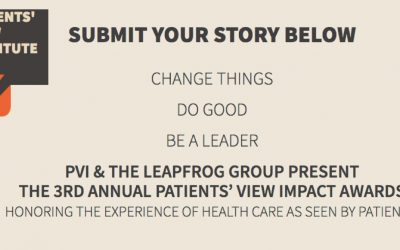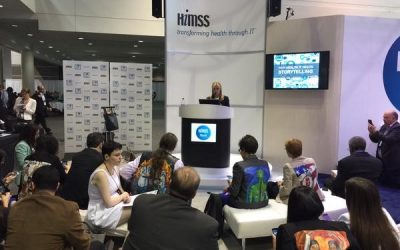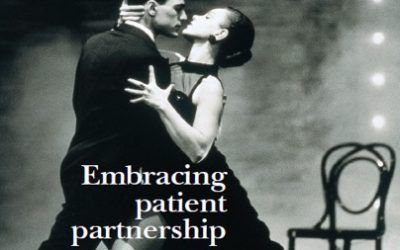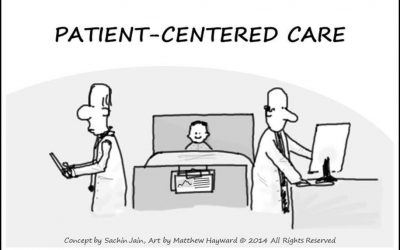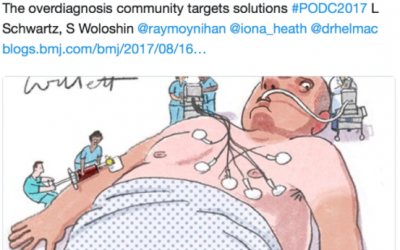e-Patients Blog
The blog of the Society for Participatory Medicine. Want to be a contributor?
Study: Facebook support group increases patient engagement, satisfaction. Who knew?? (Patients.)
No surprise to e-patients: a new study in the journal Surgery found that when patients facing a liver transplant connected with each other, they liked it. Read the article about it in MobiHealthNews or the original paper, if you can get it. Here's an extract from the...
Breaking News! JMIR Publications is the new publisher of Journal of Participatory Medicine
The following is a shared Press Release from the Society of Participatory Medicine and the Journal of Medical Internet Research: JMIR Publications is the new publisher of the Journal of Participatory Medicine (JoPM) (Toronto/Boston, Dec 6th, 2017) The Society for...
“Transforming the Culture of Care” Keynote 1: OpenNotes
Our first-ever conference was a huge success. Fittingly, the opening keynote was about OpenNotes: “patients and clinicians on the same page.” Here’s the video.
Patient Engagement: More Bark than Bite? Let’s Get to Work!
Why the Movement Needs a Breakthrough, and How You Can Help Guest post by SPM member Tyson Ortiz (right), a highly committed member of SPM who works in organizational culture change. His previous post, How I became an e-patient: through practice, with coaching (using...
“Have you seen the stuff Jarche writes?”
The image above is from the blog post described below. SPM board member-at-large Peter Elias MD is a recently retired family physician who says he's always practiced participatory medicine, long before he knew it had a name. He's contributing a terrific amount of his...
Participatory Medicine in Pinstripes: What Baseball Can Teach Doctors
The Yankees terminated the manager with the best record in baseball – because today management must be based on evidence, shared decision making and communication: participatory medicine in pinstripes!
Care Coordination, The Holy Grail of Good Medicine
Appropriate patient care revolves around a team of individuals that includes the patient, a variety of clinicians and other providers, caretakers and patient advocates. The members of this team must collaborate to ensure that the best possible decisions are made on...
How to participate in the 2017 Patients’ View Impact Awards #PVImpact17
It's that time again! Our friends at the Patients View Institute GoPVI.org are again running their "impact awards." I got to be present during the award's sessions in DC last year, and it's just terrific what they're doing - harvesting patient stories with a...
My Mother’s Scrap of Paper
I'm known in social media for my role as @EMRAnswers. Most people don't know the personal and family pain that makes me know how important this is. Here it is. (That's me above, sharing my story at the Walking Gallery meetup at HIMSS in 2015 - more on this in a...
Sarah Krüg’s TedX: “The Patient Doctor Tango”
This may be the best short talk ever about the importance of participatory medicine. SPM’s past president Sarah Krüg (@SaraKrug1) recently did a 10 minute TEDx Talk in Brussels. It’s one of those rare ones that’s pretty riveting. Watch it....
Learning More from ‘Less is More’ Medicine
(part three of three) Lessons from Quebec for Choosing Wisely and Less is More Medicine After a busy few days tracking topics around the researchers and policy-makers at a recent "Preventing Overdiagnosis" conference in Quebec aimed at reducing over-treatment in...
How many tries does it take to flip a physician?
(chapter two of three) Watching physicians pivot from 'More is Better' to 'Less is More' For British cardiologist David Warriner it all began when he was a trainee MD and it was his job to organize the daily tests ordered on the ward. Time and again he found himself...

